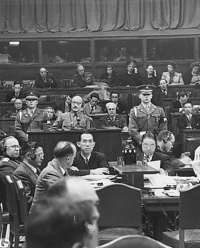Bank of America Finds a Mistake: $4 Billion Less Capital
By PETER EAVIS and MICHAEL CORKERY, The New York Times
April 28, 2014, 9:18 am
The mistake, which had gone undetected for several years, led the bank to report recently that it had $4 billion more capital than it actually had. After Bank of America reported its error to the Federal Reserve, the regulator required the bank to suspend a share buyback and a planned increase in its quarterly dividend.
While regulators still believe Bank of America has sufficient capital, the disclosure of the accounting error will most likely add fuel to the debate over whether the nation’s largest banks are too big and complicated to manage.
The error also raises questions about the quality of Bank of America’s own accounting employees, who are supposed to present an accurate financial picture of the bank’s sprawling operations to the public and regulators each quarter. The audit committee of the bank’s board and PricewaterhouseCoopers, its external auditor, also allowed the error to slip by for so long.
…
Some of the spotlight may also fall on the Fed. Since the financial crisis of 2008, the government has focused its financial system overhaul on increasing capital, the part of a bank that absorbs losses and helps it weather storms. The Fed conducts so-called stress tests of big banks each year to assess whether they have enough capital to withstand shocks. Bank of America passed its test in March, paving the way for the increase in its shareholder payouts. It gained approval for a $4 billion share repurchase plan and a 4-cent increase in its quarterly dividend.But after the accounting error, Bank of America will have to go back to the Fed to try and resolve the issue. If the Fed is satisfied with Bank of America’s explanations and remedies, it will probably be able to make some payouts, though the bank said on Monday that it expected the distributions to be less than originally announced.
Bank of America’s missteps could be resolved relatively quickly, unlike those of Citigroup, which failed the stress test last month after the Fed found potentially deep-seated problems with the bank’s financial projections, which could take several months to resolve.
…
(C)racks appeared in the comeback narrative in recent days. As part of its first-quarter earnings earlier this month, Bank of America announced $6 billion in new legal expenses related to defective mortgages, higher than many investors expected. Reports then came out indicating that the bank might later this year face more than $16 billion in penalties to settle claims with the Justice Department that it sold investors faulty mortgages.
…
Bank of America assumed bonds that Merrill had issued, including a $60 billion portfolio of so-called structured notes.When Bank of America put the notes on its own balance sheet, it did so at a discount to their original value. Bank of America has since paid off many of the notes or bought them back from investors. When these payouts were higher than the value at which Bank of America assumed the notes, the bank booked a loss because it was paying out more money than its balance sheet said the bank owed.
Bank of America’s capital should have been reduced by these losses. But instead, and in error, the bank did not do that, which artificially lifted its capital over several years.
…
The size of the capital hole, and the length of time that it was overlooked, could also raise questions about the thoroughness of the Fed’s annual stress tests. In the tests, the banks are supposed to evaluate their own strength under difficult economic and market conditions, but the Fed is also meant to review the banks’ numbers, using its own examination to identify potential red flags. The Bank of America mistake is expected to prompt the Fed to look more closely at this area of capital calculation.




Recent Comments